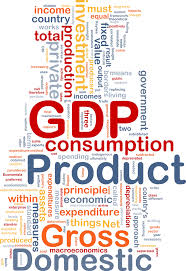Wall Street is again leading to the corridors of central banks. From Minneapolis to Paris, investors and financiers are increasingly being hired to help set…

European Central Bank

The Eurozone today is going into the same deflationary situation that the U.S. did under Jackson’s destruction of the Second Bank, and the post-Civil War…

As if the Greek tragedy of Syriza’s thrashing by the European Troika wasn’t enough, we’ve just witnessed direct overrule of a popular vote by the…

Jack reviews the most recent threat by Europe’s central bank to expand its ‘quantitative easing’ program in order to gain share of a slowing global…

Predictions are that we will soon be seeing the “nuclear option” — central bank-created money injected directly into the real economy. All other options having…

Jack Rasmus discusses the US Federal Reserve’s decision to keep interest rates near zero and keep free money to banks and speculators flowing. Jack explains…

On August 27th, I had the opportunity to address the Aspen Institute, UNIFIMEX and PWC in Mexico City during a Q&A with Patricia Armendariz. Subsequenty,…

The Delphi Initiative of Greece issued yesterday the following statement under the title Tsipras – Kammenos Surrender Greece: The Greek Left is a political force,…

Jack examines the big swing in the revised GDP figures for the 2nd quarter, and raises questions about the US Government’s ability to adjust for…

In a development spurring calls for a new "anti-bailout movement," the Greek Parliament early Friday approved a controversial €85 billion financial rescue package—the country's third…

Washington, D.C.- A new issue brief from the Center for Economic and Policy Research (CEPR) examines widely cited studies on the potential gains from the…

For a moment this summer, it appeared that Greece had cornered its creditors. In a hotly contested vote in which their European neighbors openly intervened,…
